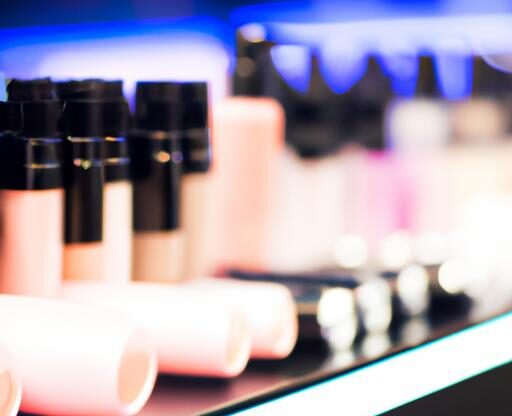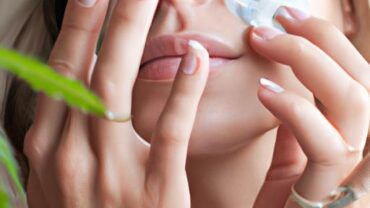Is Human Fetus Used in Beauty Products?
Introduction
Have you ever wondered what ingredients go into your favorite beauty products? It’s no secret that the beauty industry is constantly evolving, introducing new formulas and promising remarkable results. However, there are certain rumors and myths that circulate, leaving us questioning the ethics and ingredients behind these products. One such controversial claim is the use of human fetus in beauty products. In this article, we will delve into this topic and explore the importance of understanding the truth behind these allegations.
Understanding the Use of Human Fetus in Beauty Products
In today’s fast-paced world, where trends and innovations come and go, it’s crucial to stay informed about the products we use. The alleged use of human fetus in beauty products has sparked immense concern, leading to heated debates and widespread confusion. It’s essential to shed light on this topic and separate fact from fiction.
Thesis Statement: This article aims to debunk the myth surrounding the use of human fetus in beauty products, providing scientific evidence and exploring the ethical implications associated with these claims.
As we embark on this journey, let’s uncover the origins of this myth and examine the scientific evidence that refutes it. Additionally, we’ll discuss the legal and ethical aspects surrounding the use of human fetus in beauty products, ensuring that you have all the necessary information to make informed choices about the products you use.
Stay tuned as we unravel the truth behind the alleged use of human fetus in beauty products and empower you to become a conscientious consumer. Your beauty routine should not only enhance your appearance but also align with your values and ethical standards. Together, let’s explore the facts and promote transparency in the beauty industry.
Understanding Human Fetus in Beauty Products
Definition and Explanation of Human Fetus
Before delving into the alleged use of human fetus in beauty products, let’s first clarify what a human fetus is. A human fetus refers to the developing stage of a human embryo, typically from the 9th week after conception until birth. During this period, the fetus undergoes significant growth and development, forming various organs and systems.
Overview of the Beauty Industry and Its Controversial Practices
The beauty industry is a vast and dynamic field, constantly introducing new products and techniques to cater to our desire for self-care and enhancement. However, it is not without its controversies. Over the years, the industry has faced scrutiny for various practices, including animal testing, harmful chemical ingredients, and unsustainable sourcing.
Introduction to the Alleged Use of Human Fetus in Beauty Products
Among the controversial practices associated with the beauty industry is the claim of using human fetus in beauty products. This shocking allegation has sparked public concern and outrage, as consumers question the moral and ethical implications of such practices. It is important to explore this claim further to determine its validity and understand the potential consequences.
In the following sections, we will delve into the origins of this myth, examine the scientific evidence that debunks it, and discuss the legal and ethical implications surrounding the alleged use of human fetus in beauty products. It is essential to be well-informed and discerning as consumers, ensuring that the products we choose align with our values and uphold ethical standards. Let’s uncover the truth behind these allegations and promote transparency within the beauty industry.
Debunking the Myth: Is Human Fetus Really Used in Beauty Products?
Origins of the Myth
Rumors and misinformation often spread like wildfire, and the myth surrounding the use of human fetus in beauty products is no exception. It’s crucial to understand the origins of this myth to grasp the truth behind it. The myth likely stems from a misinterpretation or misrepresentation of certain ingredients used in the beauty industry. It’s important to note that the use of human fetus in beauty products is not supported by any credible evidence or scientific research.
Scientific Evidence and Studies
Let’s turn our attention to the scientific community, which has extensively examined these claims to provide evidence-based conclusions. Multiple studies and investigations have been conducted to determine the veracity of the allegations surrounding the use of human fetus in beauty products. These studies consistently disprove the myth, highlighting that there is no scientific basis to support such claims. The ingredients used in beauty products undergo rigorous testing and evaluation, ensuring their safety and compliance with regulatory standards.
Legal and Ethical Implications
The use of human fetus in beauty products, if true, would raise significant legal and ethical concerns. However, it’s important to emphasize that this alleged practice does not exist. The beauty industry is highly regulated, with strict guidelines and protocols in place to ensure product safety. Manufacturers and brands adhere to these regulations to maintain their integrity and trustworthiness. Moreover, ethical considerations are paramount in the beauty industry, and the use of human fetus would be a blatant violation of these principles.
By examining the origins of the myth, evaluating scientific evidence, and discussing the legal and ethical implications, we can confidently conclude that the claim of using human fetus in beauty products is unfounded. It is essential to rely on factual information and credible sources when forming opinions and making decisions about the products we use. Let’s continue our exploration to gain a comprehensive understanding of the beauty industry and make informed choices that align with our values.
Animal-Derived Ingredients in Beauty Products
Introduction to the Use of Animal-Derived Ingredients in Cosmetics
When it comes to beauty products, animal-derived ingredients have long been utilized in various formulations. These ingredients, derived from animals, often serve specific purposes, such as enhancing texture, providing moisturization, or improving product stability. It’s important to understand the presence of animal-derived ingredients in cosmetics and the implications associated with their use.
Common Animal-Derived Ingredients in Beauty Products
- Collagen: Derived from animal connective tissues, collagen is widely used in skincare products to promote skin elasticity and reduce the signs of aging.
- Lanolin: Extracted from sheep’s wool, lanolin is a popular ingredient in moisturizers and lip balms due to its emollient properties.
- Beeswax: Obtained from honeycomb cells, beeswax is commonly found in lip balms, creams, and lotions, providing a protective barrier and locking in moisture.
- Carmine: Derived from crushed cochineal insects, carmine is used as a red pigment in cosmetics, including lipsticks and blushes.
- Squalene: Traditionally sourced from shark liver oil, squalene is a moisturizing ingredient found in various skincare products.
Ethical Concerns and Alternatives for Animal-Derived Ingredients
While animal-derived ingredients have been prevalent in the beauty industry, concerns regarding animal welfare and sustainability have gained momentum. Many individuals are actively seeking alternatives that align with their ethical values. To address these concerns, cosmetic companies have been exploring and developing alternative ingredients that offer similar benefits without animal exploitation.
- Plant-Based Ingredients: Plant-derived alternatives, such as hyaluronic acid from fermented wheat or plant oils like jojoba and coconut, offer similar benefits to animal-derived ingredients.
- Synthetic Replicas: Scientists have developed synthetic replicas of certain animal-derived ingredients, such as synthetic collagen, which can provide comparable effects without the need for animal extraction.
- Cruelty-Free Brands: Many brands now proudly label their products as “cruelty-free,” indicating that no animal testing was involved in the production process.
By opting for beauty products with plant-based or synthetic alternatives and supporting cruelty-free brands, consumers can make a positive impact on animal welfare and promote the development of more sustainable and ethical beauty practices.
Continue reading as we explore how you can ensure ethical beauty consumption and make informed choices about the products you use. Let’s strive for a beauty industry that values both efficacy and compassion.
Ensuring Ethical Beauty Consumption
In a world where conscious consumerism is gaining momentum, it’s crucial to prioritize ethical practices when it comes to beauty products. As consumers, we have the power to make informed choices that align with our values and contribute to a more sustainable future. Here are some key aspects to consider in ensuring ethical beauty consumption:
Importance of Being an Informed Consumer
Being an informed consumer is the first step towards ethical beauty consumption. Take the time to educate yourself about the ingredients used in your favorite products and the practices of the brands you support. By understanding the impact of your choices, you can make conscious decisions that promote a more ethical beauty industry.
Tips for Identifying Ethical Beauty Products
-
Read Labels and Certifications: Look for labels such as cruelty-free, vegan, and organic. These certifications indicate that the product meets certain ethical standards. Pay attention to ingredients and avoid products that contain animal-derived substances or potentially harmful chemicals.
-
Research Brands: Take the time to research brands and their commitment to ethical practices. Look for companies that prioritize sustainability, fair trade, and transparency. Check if they have a strong stance against animal testing and if their supply chains adhere to ethical standards.
-
Support Local and Independent Brands: Often, smaller local and independent brands have a stronger focus on ethical practices. By supporting these brands, you can contribute to a more sustainable and ethical beauty industry while discovering unique and innovative products.
Supporting Cruelty-Free and Sustainable Brands
One of the most impactful ways to ensure ethical beauty consumption is by supporting cruelty-free and sustainable brands. Opt for products that are not tested on animals and do not contribute to the harm or exploitation of animals. Additionally, choose brands that prioritize sustainability by using eco-friendly packaging, responsibly sourced ingredients, and implementing ethical manufacturing processes.
By consciously selecting cruelty-free and sustainable brands, you send a powerful message to the industry, encouraging others to follow suit. Together, we can drive positive change and create a beauty industry that respects both the environment and the well-being of all living beings.
In conclusion, ethical beauty consumption starts with being an informed consumer. By understanding the ingredients, practices, and values of the brands we support, we can make choices that align with our ethical standards. Remember to read labels, research brands, and support cruelty-free and sustainable options. Let’s prioritize ethics and sustainability in our beauty routines, making a positive impact on both ourselves and the world around us.
Conclusion
In conclusion, the use of human fetus in beauty products is a myth that lacks scientific evidence and credibility. Throughout this article, we have debunked this claim by examining the origins of the myth and presenting scientific studies that refute it. It is crucial to rely on factual information when making decisions about the beauty products we use.
As consumers, we have a responsibility to be informed and conscious of our choices. While the use of human fetus in beauty products is not a reality, it is essential to consider other ethical concerns in the industry. Animal-derived ingredients are commonly used in cosmetics, raising questions about cruelty and sustainability.
To ensure ethical beauty consumption, it is important to support brands that prioritize transparency, cruelty-free practices, and sustainable sourcing. By choosing products that align with our values, we can make a positive impact on the industry and encourage responsible practices.
Let’s continue to be vigilant consumers, asking questions, and seeking reliable information. By promoting transparency and ethics in the beauty industry, we can create a future where beauty products are not only effective but also aligned with our values and principles.
Remember, you have the power to make a difference through your choices. Together, let’s prioritize ethical beauty consumption and advocate for a more sustainable and transparent industry.





